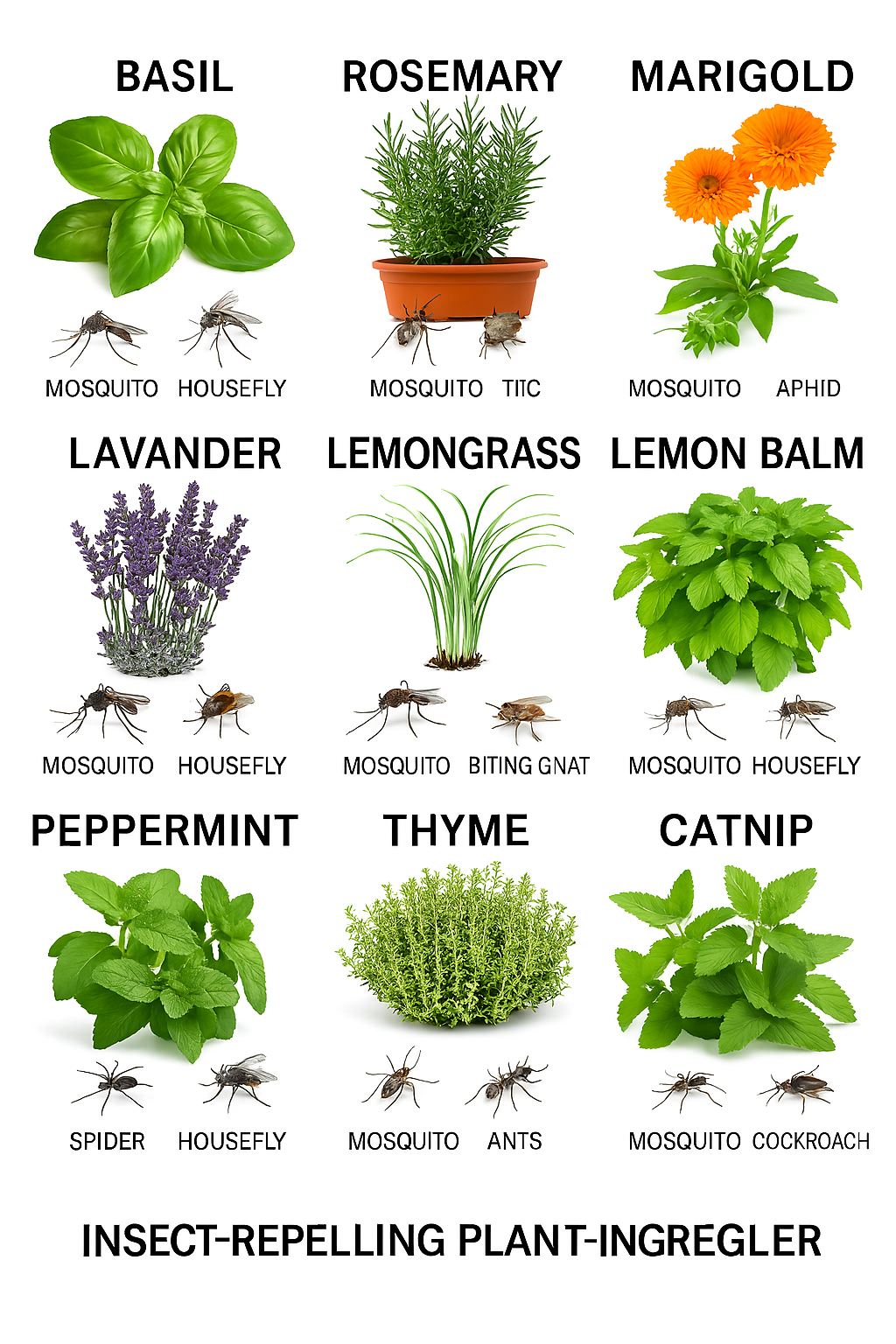ADVERTISEMENT
#### 4. **How to Grow Lemon Balm in Your Garden**
Now that you understand why lemon balm is the best mosquito-repellent plant, it’s time to learn how to grow it in your own garden. Lemon balm is a versatile and easy-to-grow herb that thrives in a variety of conditions, making it a perfect addition to your garden this summer.
##### **Growing Conditions for Lemon Balm**
Lemon balm is a hardy herb that can thrive in most climates, especially in USDA hardiness zones 4 to 9. It prefers well-drained, fertile soil and partial to full sunlight. While it can tolerate full sun, it does best in locations that receive a few hours of afternoon shade, especially in hotter climates.
– **Soil**: Lemon balm prefers slightly acidic to neutral soil (pH 6.5 to 7.0). It can tolerate a variety of soil types, but well-drained, loamy soil will promote the healthiest growth.
– **Watering**: Water regularly, keeping the soil consistently moist, but avoid over-watering, as lemon balm is prone to root rot in waterlogged soil.
– **Spacing**: Lemon balm can spread rapidly due to its **rhizomatic** root system. It’s a good idea to plant it in containers or to provide ample space for it to spread. If planted in the ground, space your lemon balm plants about 18 inches apart.
##### **Caring for Lemon Balm**
Lemon balm is a low-maintenance plant that doesn’t require much care once established. Here are a few tips for keeping your lemon balm healthy:
– **Pruning**: Regular pruning will help keep your plant compact and prevent it from becoming too leggy. Prune back the stems in early spring to encourage fresh growth.
– **Harvesting**: You can harvest lemon balm leaves throughout the growing season. Simply snip off the top leaves or branches, being careful not to remove more than one-third of the plant at once.
– **Pests and Problems**: Lemon balm is generally pest-resistant, but it can attract aphids and whiteflies. If you notice any pests, treat the plant with insecticidal soap or a natural insect repellent.
##### **Lemon Balm in Containers**
If you want to keep your lemon balm contained and prevent it from spreading uncontrollably, you can grow it in pots or containers. This allows you to move the plant around your garden or even place it on a patio or balcony. A container also helps prevent the plant from taking over other parts of your garden.
#### 5. **Other Uses for Lemon Balm in Your Garden**
While lemon balm’s primary function in your garden may be as a mosquito repellent, it also offers a wide range of other benefits.
– **Culinary Uses**: Lemon balm leaves can be used fresh in salads, teas, and desserts, or dried for later use. The bright, lemony flavor adds a refreshing touch to a variety of dishes.
– **Medicinal Uses**: Lemon balm has been used for centuries as a calming herb. It can help reduce anxiety, promote better sleep, and ease digestive discomfort. You can make lemon balm tea or infuse it in oil for topical use.
– **Companion Planting**: Lemon balm can act as a companion plant in your garden by attracting pollinators like bees and butterflies. It’s also known to help deter pests like aphids and mosquitoes from other plants.
#### 6. **Making Your Own Lemon Balm Mosquito Repellent**
For those who want to take mosquito control to the next level, you can make your own natural mosquito-repellent spray using lemon balm.
**Ingredients:**
– Fresh or dried lemon balm leaves
– Vodka or rubbing alcohol (for extraction)
– Water
– Essential oils (optional, such as citronella, eucalyptus, or lavender)
**Instructions:**
1. Chop the lemon balm leaves and place them in a jar.
2. Fill the jar with vodka or rubbing alcohol to cover the leaves.
3. Seal the jar and let it sit for about 2 weeks, shaking it daily to help release the oils from the leaves.
4. After 2 weeks, strain the mixture and add water to dilute it.
5. Optional: Add a few drops of other essential oils, like citronella or eucalyptus, for added mosquito-repellent power.
6. Transfer the mixture into a spray bottle and use it as a natural mosquito repellent for your skin and outdoor areas.
#### 7. **Conclusion**
As the summer season approaches, it’s important to take steps to protect yourself and your loved ones from mosquitoes. While citronella and geranium have long been
associated with repelling these pests, **lemon balm** has emerged as the ultimate mosquito-repellent plant. With its high citral content and strong aroma, lemon balm provides a more effective and longer-lasting solution to keeping mosquitoes at bay.
Not only is lemon balm a powerful natural repellent, but it also offers a range of other benefits, from culinary uses to medicinal properties. Its easy cultivation, low-maintenance care, and versatility make it a must-have in any garden. By incorporating lemon balm into your summer garden, you can enjoy a mosquito-free season while reaping the numerous other rewards this remarkable plant has to offer.
